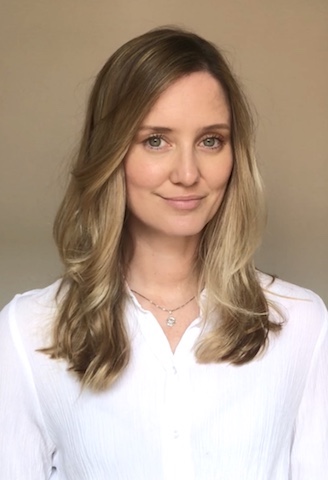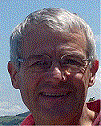Studiare
In questa sezione è possibile reperire le informazioni riguardanti l'organizzazione pratica del corso, lo svolgimento delle attività didattiche, le opportunità formative e i contatti utili durante tutto il percorso di studi, fino al conseguimento del titolo finale.
Calendario accademico
Il calendario accademico riporta le scadenze, gli adempimenti e i periodi rilevanti per la componente studentesca, personale docente e personale dell'Università. Sono inoltre indicate le festività e le chiusure ufficiali dell'Ateneo.
L’anno accademico inizia il 1° ottobre e termina il 30 settembre dell'anno successivo.
Calendario didattico
Il calendario didattico indica i periodi di svolgimento delle attività formative, di sessioni d'esami, di laurea e di chiusura per le festività.
| Periodo | Dal | Al |
|---|---|---|
| Sem. IA | 25-set-2017 | 28-ott-2017 |
| Sem. IB | 13-nov-2017 | 16-dic-2017 |
| Sem. IIA | 26-feb-2018 | 7-apr-2018 |
| Sem. IIB | 23-apr-2018 | 30-mag-2018 |
| Sessione | Dal | Al |
|---|---|---|
| Sessione Invernale | 22-gen-2018 | 23-feb-2018 |
| Sessione Estiva | 11-giu-2018 | 20-lug-2018 |
| Sessione Autunnale | 20-ago-2018 | 21-set-2018 |
| Periodo | Dal | Al |
|---|---|---|
| Festa di Ognissanti | 1-nov-2017 | 1-nov-2017 |
| Festa dell'Immacolata | 8-dic-2017 | 8-dic-2017 |
| Vacanze di Natale | 22-dic-2017 | 7-gen-2018 |
| Vacanze di Pasqua | 30-mar-2018 | 3-apr-2018 |
| Festa della liberazione | 25-apr-2018 | 25-apr-2018 |
| Festa del lavoro | 1-mag-2018 | 1-mag-2018 |
| Festa del Santo Patrono - S. Zeno | 21-mag-2018 | 21-mag-2018 |
| Festa della Repubblica | 2-giu-2018 | 2-giu-2018 |
| Vacanze Estive | 13-ago-2018 | 18-ago-2018 |
| Descrizione | Periodo | Dal | Al |
|---|---|---|---|
| prima parte del primo semestre | Lab. IA | 30-ott-2017 | 11-nov-2017 |
| seconda parte del primo semestre | Lab. IB | 8-gen-2018 | 20-gen-2018 |
| prima parte del secondo semestre | Lab. IIA | 9-apr-2018 | 21-apr-2018 |
| seconda parte del secondo semestre | Lab. IIB | 31-mag-2018 | 9-giu-2018 |
Calendario esami
Gli appelli d'esame sono gestiti dalla Unità Operativa Segreteria Corsi di Studio Scienze Umane.
Per consultazione e iscrizione agli appelli d'esame visita il sistema ESSE3.
Per problemi inerenti allo smarrimento della password di accesso ai servizi on-line si prega di rivolgersi al supporto informatico della Scuola o al servizio recupero credenziali
Per dubbi o domande leggi le risposte alle domande più frequenti F.A.Q. Iscrizione Esami
Docenti
 monica.antonello@univr.it
monica.antonello@univr.it
 valentina.biino@univr.it
valentina.biino@univr.it
 paolamaria.caleffi@univr.it
paolamaria.caleffi@univr.it
 licia.landi@univr.it
licia.landi@univr.it
 giuseppe.longo@univr.it
giuseppe.longo@univr.it
 beatrice.melodiafesta@univr.it
beatrice.melodiafesta@univr.it
 anja.meyer@univr.it
anja.meyer@univr.it

Migliorati Lorenzo
 lorenzo.migliorati@univr.it
lorenzo.migliorati@univr.it
 045802 8135
045802 8135
 maria.mori@univr.it
maria.mori@univr.it
 paolo.nitti@univr.it
paolo.nitti@univr.it
 michele.picotti@univr.it
michele.picotti@univr.it
 stefania.pontrandolfo@univr.it
stefania.pontrandolfo@univr.it
 dora.renna@univr.it
dora.renna@univr.it

Tacconi Giuseppe
 giuseppe.tacconi@univr.it
giuseppe.tacconi@univr.it
 +39 045 802 8655
+39 045 802 8655
Piano Didattico
Il piano didattico è l'elenco degli insegnamenti e delle altre attività formative che devono essere sostenute nel corso della propria carriera universitaria.
Selezionare il piano didattico in base all'anno accademico di iscrizione.
1° Anno
| Insegnamenti | Crediti | TAF | SSD |
|---|
2° Anno Attivato nell'A.A. 2018/2019
| Insegnamenti | Crediti | TAF | SSD |
|---|
Laboratorio di lingua inglese per la professionalita' docente 2
3° Anno Attivato nell'A.A. 2019/2020
| Insegnamenti | Crediti | TAF | SSD |
|---|
4° Anno Attivato nell'A.A. 2020/2021
| Insegnamenti | Crediti | TAF | SSD |
|---|
Laboratorio di didattica della lingua inglese 1
5° Anno Attivato nell'A.A. 2021/2022
| Insegnamenti | Crediti | TAF | SSD |
|---|
Laboratorio di didattica della lingua inglese 2
| Insegnamenti | Crediti | TAF | SSD |
|---|
| Insegnamenti | Crediti | TAF | SSD |
|---|
Laboratorio di lingua inglese per la professionalita' docente 2
| Insegnamenti | Crediti | TAF | SSD |
|---|
| Insegnamenti | Crediti | TAF | SSD |
|---|
Laboratorio di didattica della lingua inglese 1
| Insegnamenti | Crediti | TAF | SSD |
|---|
Laboratorio di didattica della lingua inglese 2
| Insegnamenti | Crediti | TAF | SSD |
|---|
Legenda | Tipo Attività Formativa (TAF)
TAF (Tipologia Attività Formativa) Tutti gli insegnamenti e le attività sono classificate in diversi tipi di attività formativa, indicati da una lettera.
Filosofia della scuola e ricerca educativa (2018/2019)
L'insegnamento è organizzato come segue:
Obiettivi formativi
Conoscenza e capacità di comprensione
Al termine del corso gli studenti e le studentesse dovranno:
• conoscere i principi che sono alla base di un’idea di scuola orientata all’etica del servizio;
• conoscere i pilastri epistemologici che sono alla base della ricerca educativa
• conoscere gli step necessari alla definizione di un progetto di ricerca in ambito educativo
Conoscenza e capacità di comprensione applicata
Al termine del corso gli studenti e le studentesse dovranno:
• avere consapevolezza delle implicazioni etiche e deontologiche connesse alla professione docente
• saper riconoscere i problemi educativi che emergono dal contesto
• saper individuare strategie di azione coerenti con i fabbisogni individuati nel contesto e saperne verificare l’impatto attraverso azioni di ricerca educativa
Autonomia di giudizio
Al termine del corso gli studenti avranno acquisito
• la capacità di analizzare criticamente i bisogni educativi di un contesto;
• la capacità di valutare le proprie e altrui azioni educative, individuandone punti di miglioramento e criticità.
Abilità comunicative
Al termine del corso gli studenti dovranno:
• saper comunicare in modo efficace e consapevole la propria analisi del contesto sia ai colleghi che ai genitori;
• saper documentare le azioni educative e le analisi ad esse inerenti.
Capacità di apprendere
Al termine del corso gli studenti dovranno:
• saper analizzare le tematiche educative al fine di identificarne stimoli di riflessione utili allo sviluppo della propria competenza professionale;
• saper analizzare criticamente una ricerca educativa;
• essere in grado di individuare le linee di formazione continua più adeguata a sviluppare le proprie competenze.
Programma
Mortari, L. (2007). Cultura della ricerca e pedagogia. Prospettive epistemologiche. Roma: Carocci.
Mortari, L. (2017). Service Learning. Per un apprendimento responsabile. Franco Angeli: Milano (primo capitolo, Costruire insieme un bene comune, pp. 9-35)
Mortari, L. (2008). A scuola di libertà: formazione e pensiero autonomo. R. Cortina: Milano.
Mortari L. (2013), Aver cura della vita della mente. Roma: Carocci
Bibliografia
| Autore | Titolo | Casa editrice | Anno | ISBN | Note |
|---|---|---|---|---|---|
| Luigina Mortari | A scuola di libertà: formazione e pensiero autonom | Cortina | 2008 | ||
| Luigina Mortari | Aver cura della vita della mente | Carocci | 2013 | ||
| Luigina Mortari; Luca Ghirotto (a cura di) | Metodi per la ricerca educativa | Carocci | 2019 | 978-88-430-9847-7 | |
| Luigina Mortari | Service Learning. Per un apprendimento responsabile (Edizione 1) | 2017 | 9788891752635 | ||
| Mortari L. | Cultura della ricerca e pedagogia. Prospettive epistemologiche | Carocci, Roma | 2007 |
Modalità d'esame
La valutazione degli apprendimenti avverrà attraverso una verifica scritta con domande aperte. Maggiori dettagli verranno dati durante il corso
Tipologia di Attività formativa D e F
Insegnamenti non ancora inseriti
Prospettive
Avvisi degli insegnamenti e del corso di studio
Per la comunità studentesca
Se sei già iscritta/o a un corso di studio, puoi consultare tutti gli avvisi relativi al tuo corso di studi nella tua area riservata MyUnivr.
In questo portale potrai visualizzare informazioni, risorse e servizi utili che riguardano la tua carriera universitaria (libretto online, gestione della carriera Esse3, corsi e-learning, email istituzionale, modulistica di segreteria, procedure amministrative, ecc.).
Entra in MyUnivr con le tue credenziali GIA: solo così potrai ricevere notifica di tutti gli avvisi dei tuoi docenti e della tua segreteria via mail e a breve anche tramite l'app Univr.
Stage e Tirocini
Le attività di tirocinio indirette e dirette, per complessive 600 ore pari a 24 crediti formativi universitari, come stabilito dal D.M. 249/2010, hanno inizio nel secondo anno di corso e si svolgono secondo modalità tali da assicurare un aumento progressivo del numero dei relativi crediti formativi universitari fino all'ultimo anno.La struttura generale del tirocinio prevede:
- II annualità 100 ore di tirocinio pari a 4 CFU
- III annualità 100 ore di tirocinio pari a 4 CFU
- IV annualità 175 ore di tirocinio pari a 7 CFU
- V annualità 225 ore di tirocinio pari a 9 CFU.
Il tirocinio è seguito da insegnanti tutor coordinatori e da tutor organizzatori distaccati, rispettivamente a tempo parziale e a tempo pieno, presso il CdS. Esso prevede attività che si sviluppano secondo modalità di partecipazione periferica e modalità di partecipazione attiva: tali attività dovranno essere, adeguatamente documentate da parte dello studente e saranno supervisionate dai tutor competenti.
La frequenza alle attività di tirocinio è obbligatoria.
Documenti
| Titolo | Info File |
|---|---|
|
|
pdf, it, 115 KB, 23/06/21 |
Progetto Dinamo corsi di formazione continua
I corsi del Progetto Dinamo sono una proposta di formazione continua per i/le docenti della scuola dell'infanzia e primaria in servizio elaborata dal Corso di Studi in Scienze della Formazione Primaria dell'Università di Verona.
La loro frequenza, in numero limitato, è aperta anche agli studenti di Scienze della formazione primaria.
L'iscrizione non comporta oneri per gli studenti.
Per i corsi di 8 ore sarà riconosciuto 1 CFU nei crediti liberi; per quelli di 16 ore i crediti liberi riconosciuti saranno 2.
Le modalità di iscrizione saranno comunicate e gestite tramite i rappresentanti degli studenti.
Documenti
| Titolo | Info File |
|---|---|
|
|
pdf, it, 198 KB, 29/08/22 |
Gestione carriere
Esercitazioni Linguistiche CLA
Guide operative per lo studente
In questa pagina lo studente potrà trovare delle guide operative, utili al completamento del proprio percorso universitario, che vanno ad integrare quanto già indicato nei Regolamenti didattici del CdS.
1- Qui si possono reperire indicazioni in merito ai riconoscimenti di carriera, ai crediti a libera scelta per lo studente e alle certificazioni linguistiche per gli studenti iscritti ai CdS afferenti al Dipartimento di Scienze Umane a partire dalla coorte 2022 (le indicazioni contenute nella Guida entrano in vigore dal 29 marzo 2023 e sono retroattive solo se a favore dello studente);
2 - Qui si possono reperire indicazioni in merito ai riconoscimenti di carriera, ai crediti a libera scelta per lo studente e alle certificazioni linguistiche per gli studenti iscritti ai CdS afferenti al Dipartimento di Scienze Umane a partire dalla coorte 2014 (le indicazioni contenute nella Guida entrano in vigore dal 29 aprile 2020 e sono retroattive solo se a favore dello studente);
3 - Qui si possono reperire indicazioni in merito al conseguimento dei crediti a libera scelta (Crediti D e F) per gli studenti iscritti ai i CdS afferenti al Dipartimento di Scienze Umane fino alla coorte 2013 (le indicazioni contenute nella Guida entrano in vigore dal 23 febbraio 2011 e sono retroattive solo se a favore dello studente).
Documenti
| Titolo | Info File |
|---|---|
|
|
pdf, it, 325 KB, 02/05/23 |
|
|
pdf, it, 212 KB, 02/05/23 |
|
|
pdf, it, 131 KB, 02/05/23 |
Tutorato per gli studenti
Tutti i docenti del Corso di Studio possono formire una forma di tutorato volta ad orientare e assistere gli studenti lungo tutto il corso degli studi.
Le matricole, gli studenti che si approcciano al tirocinio, gli studenti in uscita e tutti gli studenti che manifestano difficoltà nel loro percorso di studi possono contattare i docenti indicati come tutor del corso di laurea in Scienze della formazione primaria:
-prof. Claudio Girelli (Referente del CdS);
- prof.ssa Roberta Silva;
- prof.ssa Alessia Bevilacqua;
-prof.ssa Federica Valbusa;
- prof. Fabio Vicini
Area riservata studenti
Prova Finale
Come previsto dall’art. 6, comma 5, del Decreto 10 settembre 2010, n. 249, il Corso di Studio si concluderà con la stesura e la discussione della relazione finale di tirocinio e con la preparazione e la discussione della tesi.
La prova finale dovrà attestare il livello qualitativo del lavoro sul campo effettuato dallo studente durante il tirocinio nonché la sua capacità di proporsi quale futuro professionista della scuola in grado di assolvere con piena autonomia e consapevolezza, preparazione metodologica e di contenuti, ai compiti relativi alla funzione docente. In particolare, l’elaborato relativo alla tesi dovrà testimoniare le capacità di ricerca.
La tesi e la relazione finale di tirocinio sono elaborate in modo originale dallo studente rispettivamente sotto la guida di un relatore scelto tra i docenti del Corso di Studio e sotto la guida del tutor coordinatore che ha supervisionato lo svolgimento del tirocinio nell’ultima annualità. La discussione della tesi e della relazione finale di tirocinio costituiscono, unitariamente, esame avente anche valore abilitante all’insegnamento nella scuola dell’infanzia e nella scuola primaria.
La discussione della tesi e della relazione di tirocinio devono avere luogo entro e non oltre 12 mesi l’una dall’altra.
La discussione della relazione finale di tirocinio avverrà di fronte ad una commissione nominata dal Presidente del Collegio Didattico presieduta da un docente e composta da un tutor organizzatore e da due tutor coordinatori.
La discussione della tesi avverrà di fronte ad una Commissione nominata dal Presidente del Collegio Didattico composta con un minimo di cinque docenti titolari di insegnamento e integrata da due docenti tutor e da un rappresentante designato dall’Ufficio Scolastico Regionale.
La tesi:
La Laurea Magistrale si consegue con l’acquisizione di almeno 300 CFU, nel rispetto del numero massimo di esami o valutazioni finali del profitto di cui all’articolo 4, comma 2.
Lo studente dovrà inoltre aver superato con esito positivo la prova finale, composta dalla discussione della relazione finale di tirocinio e dalla discussione della tesi, di cui all’articolo precedente.
Il voto finale di laurea magistrale è espresso in cento-decimi (110) ed è costituito dalla somma:
- della media ponderata (MP) dei voti negli esami di cui all’articolo 4, comma 1, pesati con i relativi crediti e rapportata a cento-decimi;
- dell’incremento/decremento di voto, pure espresso in cento-decimi, conseguito nella prova finale (da 0 a 6 punti).
- dell’eventuale incremento di voto legato alla votazione conseguita nell’attività di tirocinio (da 0 a 4 punti)
Allo scopo di favorire la partecipazione alla mobilità internazionale, a tutte le studentesse e a tutti gli studenti che: (i) nel corso del ciclo di studi abbiano acquisito il riconoscimento in carriera di almeno 12 CFU conseguiti in mobilità internazionale e (ii) conseguano il titolo finale entro la durata normale del Corso di Studi, verranno attribuiti n. 2 (due) punti aggiuntivi da computarsi ai fini della determinazione del punteggio finale di laurea (fermo restando che tali punti aggiuntivi non saranno computati nell’ipotesi in cui la studentessa o lo studente abbia comunque conseguito il punteggio massimo) – Art. 5, comma 4°, del Regolamento di Ateneo per la mobilità studentesca internazionale (D.R. 140/2021 del 12/01/2021). Gli eventuali due punti aggiuntivi saranno assegnati all’interno dei 6 a disposizione per la discussione della tesi di laurea, restano quindi invariati i 4 punti attribuibili al percorso di tirocinio.
Qualora la/il candidata/o abbia ottenuto il voto massimo e il lavoro di tesi risulti meritevole, può essere attribuita la lode.
Documenti
| Titolo | Info File |
|---|---|
|
|
pdf, it, 434 KB, 07/02/24 |
|
|
pdf, it, 418 KB, 30/11/23 |
|
|
pdf, it, 131 KB, 19/03/24 |
eTwinning
Il Corso di SFP di Verona fa parte del Gruppo Europeo per la formazione eTwinning per i futuri insegnanti – Initial Teacher Education (ITE). Seminari di presentazione della piattaforma e delle sue potenzialità, introduzione alla comunità e/o laboratori sull’uso della stessa sono proposti annualmente come parte integrante dei Laboratori di Lingua Inglese per la Professionalità Docente, e quindi come parte dell’offerta formativa; per il II anno anche con attività progettuale in lingua inglese, studente-studente o a piccoli gruppi.
Per il I anno, a partire dall’ A.A. 2017/2018 è stato realizzato con il supporto dell’USR Veneto e la collaborazione delle ambasciatrici eTwinning un incontro seminariale di presentazione della comunità e piattaforma eTwinning, come parte del Laboratorio di Lingua Inglese per la Professionalità docente. Gli studenti svolgono attività di ricerca e reperimento materiale nel portale eTwinning, studiano alcuni progetti considerati “buone pratiche” e si confrontano con una breve attività in piccolo gruppo sui primi passi di introduzione e orientamento ad un progetto eTwinning. Solitamente sono coinvolti circa un centinaio di studenti.
Per il II anno, a partire dall’A.A. 2020/2021, è stato introdotto un Laboratorio eTwinning (12 ore – 1CFU) di progettualità didattica in lingua inglese. Gli studenti svolgono attività individuali all’interno della Comunità volte a costruire una rete di partner e cogliere ogni potenzialità offerta dalla piattaforma. Inoltre, viene proposta una simulazione progettuale, in piccoli gruppi, dall’introduzione dei partner alla valutazione e disseminazione dei risultati di un progetto eTwinning. Solitamente partecipano circa un centinaio di studenti. Al termine del modulo è richiesto un portfolio digitale in lingua inglese. I futuri docenti esercitano contemporaneamente competenze linguistiche, digitali e sociali facilmente riutilizzabili nella professione futura.
Per il V anno, a partire dal AA 2022/2023, è stato introdotto, all'interno del Laboratorio di Lingua Inglese, un Laboratorio eTwinning di progettualità didattica con un altro ITE (12 ore – 1CFU).
Nell'a.a. 2022/2023 è stata attivata e realizzata una collaborazione con SFP - Università di Cagliari.
Nell'a.a. 2023/2024 si è attivata una collaborazione con l'Università di Castilla-La Mancha (Spagna).
Le attività realizzate sono state presentate durante il Coordinamento Nazionale eTwinning ITE
- a Firenze il 17 e 18 marzo 2022
- e a Lecce il 15 e 16 maggio 2023
















